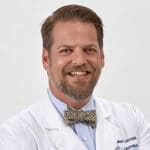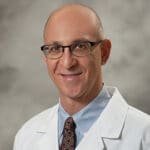Our surgeons treat all aspects of general surgery, including:
- Minimally Invasive Surgery, also called laparoscopic surgery, is performed through small incisions. Using specialized techniques, miniature cameras with microscopes, minute fiber-optic flashlights and high-definition monitors, surgeons perform surgery through a tiny incision that requires only a stitch or two to close. Our surgeons are laparoscopy experts and may perform very complex operations laparoscopically, including hiatal hernia repair, gallbladder removal, appendix removal, etc. Minimally invasive surgery has several patient benefits, including:
- Smaller incisions (Band-Aid size)
- Decreased pain and need for pain medications
- Shorter hospital stays
- Lower risk of complication
- Less blood loss and need for blood transfusions
- Less scarring
- Quicker return to normal activities and work
- Hernia repair, including the repair of complex hernias
- Complex digestive diseases: We specialize in the treatment of complex digestive diseases requiring surgery.
- Pancreatic disorders: Our surgeons have the region’s most extensive experience managing diseases of the pancreas, including pancreatitis and cancer of the pancreas.
- Trauma: Our surgeons staff the region’s only Level I trauma center and provide comprehensive management of the injured patient.
Our surgeons have a long-standing tradition of being pioneers of new, more effective, less invasive treatments. Our surgeons were the first in the area to perform robotic foregut surgery, which is a more precise method of performing laparoscopic surgery, the first single-incision laparoscopic cholecystectomy (surgery to remove the bladder) and the first single-incision splenectomy (surgery to remove the spleen) in the region. The major benefit to single-incision laparoscopic surgery (SILS) is fewer incisions, which in the majority of patients means less pain. In addition, SILS is cosmetically more appealing. Our mission is to improve the care of our patients by providing the latest and most advanced surgical patient care while we seek to generate new knowledge through research. We offer more than the best technical surgery in the region. We also provide thoughtful, compassionate care that considers the biology of the disease, as well as the overall patient. Find a surgeon in Louisville by viewing the Providers tab.
Diseases and Conditions
- Hernia
- Appendicitis
- Gall stones
- Reflux
- Gastroesophageal reflux disease (GERD)
- Colon problems that require surgery
- Enlarged spleen
- Trauma to the spleen
- Ruptured spleen
- Tumors of the adrenal glands
- Feeding tube placement for a variety of conditions
- Pancreatitis
- Disorders of the gastrointestinal tract
- Infections that need to be treated with surgery
- Gallbladder disease
- Trauma
- Conditions requiring kidney removal, such as kidney cancer, a kidney that does not function, and a congenitally small kidney
- Obesity-related health conditions, including high blood pressure, diabetes, heart and blood vessel disease, sleep apnea, GERD, arthritis and high cholesterol
Treatments and Services
Our highly skilled surgeons offer a variety of treatments and services. Some medical conditions may require a minor surgical procedure, which can be performed in the office, while others may require hospitalization and the use of special equipment, such as laparoscopy.
Treatments include:
- Minimally invasive surgery to remove the bladder (cholecystectomy)*
- Single-incision laparoscopic cholecystectomy
- Anti-reflux procedures for gastroesophageal reflux (GERD)
- Surgery to remove part or all of the colon
- Hernia repair
- Surgical removal of the appendix (Appendectomy)
- Surgical removal of the spleen (Splenectomy)*
- Single-Incision laparoscopic splenectomy
- Surgical removal of one or both adrenal glands (Adrenalectomy)
- Removal of part of the pancreas
- Removal of part of the colon
- G-tube placement
- J-tube placement
- Infusaport placement
- Endoscopy: Endoscopy uses an instrument to examine the interior of a hollow organ or cavity of the body. Unlike most other medical imaging devices, endoscopes are inserted directly into the organ.
- EGD (upper endoscopy): Upper endoscopy lets our physicians examine the lining of the upper part of your gastrointestinal tract, which includes the esophagus, stomach and duodenum (first portion of the small intestine). We use a thin, flexible tube called an endoscope, which has its own lens and light source and will view the images on a video monitor.
- Colonoscopy
- ERCP (endoscopic retrograde cholangiopancreatography): A technique that combines the use of endoscopy and fluoroscopy to diagnose and treat certain problems of the biliary (bile duct) or pancreatic ductal systems. Through the endoscope, the physician can see the inside of the stomach and duodenum and inject dyes into the ducts in the biliary area and pancreas so they can be seen on X-rays. ERCP is used primarily to diagnose and treat conditions of the bile ducts, including gallstones, scars, leaks (from trauma and surgery) and cancer.
- PEG (percutaneous endoscopic gastrostomy): an endoscopic medical procedure in which a tube (PEG tube) is passed into a patient’s stomach through the stomach wall, usually to provide a means of feeding.
*Minimally invasive options available


 UofL Health – Chestnut Street Outpatient Center
UofL Health – Chestnut Street Outpatient Center








